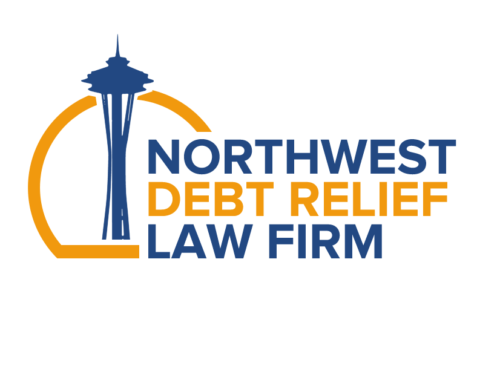| Bert: | All right. We are back. My next guest, Tom McAvity. Tom McAvity is a bankruptcy attorney and the author of the bestselling book, “The Benefits of Bankruptcy”. Tom McAvity, welcome to Money for Lunch. |
| Tom: | Thank you. |
| Bert: | All right, so let’s talk about this. There are obviously some benefits to bankruptcy. Let’s talk about why did you write the book. That’s a question I ask all my authors. What was the inspiration behind writing your book, the benefits of bankruptcy? |
| Tom: | You know, the real inspiration behind writing the book was a couple years ago I had an epiphany that I probably should have had really at the beginning of my career, but from what I’ve seen most firms still haven’t had, which is that there’s a great emphasis in bankruptcy firms on delivering the core benefits of bankruptcy. The elimination of unsecured debt, catching up on the missing house payments, getting licenses back. The usual benefits of bankruptcy, which most firms do a pretty good job of emphasizing, but what I really started to think about was, what are consumers really looking for? I think the real issue for most people is, yeah they want to eliminate the credit card debt and the medical debt and get the collectors to stop calling them, but what they’re really looking for is a return to the financial mainstream, so that they can participate like anyone else. Once I realized that that’s what people are really looking for. They’re not just looking to move some stuff off a credit report, but really return to a place where they can buy houses once again, buy cars once again without being laughed off a lot. Just really being able to do what anyone else can do. I realized that a book was probably going to be necessary and we were going to need to retool the services that we deliver to consumers, so that’s really where it started. |
| Bert: | Got you. Got you. Now, I like that. You know what? Let’s talk about some of this because I think bankruptcy has a lot of mysteries surrounding it. There are people who will tell you it’s the best thing in the world. There’s other people who tell you it’s the worst thing in the world. There’s stories like Walt Disney, who supposedly filed bankruptcy, I think like seven times. To me there’s a lot of mystery around bankruptcy. Why don’t you tell us maybe some of the myths around bankruptcy. What is it that I can do? What is it that I can’t do? |
| Tom: | The myth is that bankruptcy is going to ruin your financial life forever. What we’ve done is taken steps to make sure that the exact opposite is true. What we do is, we don’t just offer bankruptcy legal services, but as apart of people filing bankruptcy with us, we offer credit repair and education. I shouldn’t say credit repair, but credit education and materials, so that people can really rebuild after the case is done. That completely defeats the misconception that bankruptcy ruins your life forever. People think that, you know, I’m going to file bankruptcy and it’s going to be on my credit score for seven to ten years. That’s a fundamental misunderstanding, which I cover in the book, which is that yeah, something can be on your credit report for a long time, but you don’t care what’s on your credit report. You care what your score is. The guy on the car lot isn’t going to look at your credit report. The mortgage lender isn’t going to look at your credit report. They want to know one thing, that’s what’s your FICO? What’s your credit score? From what we’ve seen, most people file bankruptcy and then follow up reading the credit education and materials that we pay a company to provide to all of our clients, that a lot of them can recover to a middle seven hundred credit score within eighteen months, which is a huge surprise to most of our clients. |
| Schedule an appointment | |
| Bert: | Wow, that’s excellent. That’s excellent. I like what you said there. I hope everybody picked up on that. Is that what they really just care about, your score. I mean look, if you filed bankruptcy and you now have a seven hundred, you can get whatever you want. Now, let’s say you’ve never filed bankruptcy, but you’re at a five-forty, you’re kind of screwed. |
| Tom: | Yup, yup. For life, often. The only sad part about practicing bankruptcy for me, is all too often we’ve seen people that have been wrestling with debt for years on end and dealing with collectors and really trying to do the honorable thing and fight it out, but it’s just an impossible, it is an impossible task to complete. Once you’re that far behind there’s no coming back. Sadly, I’ll be talking to a family and realize, God they could have dealt with this two years ago and been with a mid-seven hundred credit score right now. |
| Bert: | Right. Here’s the bitter thing and a lot of people don’t get this, that bankruptcy was a law specifically carved out to help people who got in over their head for whatever reason. It could be for health. It could have been that they’re business went bad or whatever. If people really understood what’s going on, if you look at, for instance, the airlines. I believe all the airlines have filed bankruptcy at least once, except for Southwest. I don’t believe they’ve ever filed bankruptcy, but Continental Airlines, before they got bought out, they had filed bankruptcy like three or four times. It is something there that the law created to help all of us out. Not just a business, but individuals as well. |
| Tom: | Right. I think all too often we’re the last people to let ourselves off the hook. You’ll meet the client where you know that if it had been their best friend or their cousin or something that they would have been telling that person to file bankruptcy every day, but when it’s you, it’s just hard to let yourself off the hook and start over. |
| Bert: | Yeah. No, absolutely. I’m glad you brought that up. It’s that, what do you call it? That old saying that we’re much harder on ourselves than anybody else. I think that sometimes, as you said, we make it a point of pride, sometimes the worst kind of pride. Yes, I think most people, all of us want to be able to pay for all our debts. We all want to be able to be independent, but sometimes we need help. I mean, that is just the reality. Like you said, it’s better to ask for help now. Get this bankruptcy out of the way. Now, two years down the road, three years down the road, you’ve had two or three years of great sleep. You’ve had two or three years of not arguing with your spouse. You’ve had a chance to rebuild your credit. All right, so let’s talk about this. How does bankruptcy work? In other words because I know there’s a bunch of different bankruptcies. Why don’t you give me maybe a synopsis of how bankruptcy works for consumers, as well as for let’s say a small business. |
| Tom: | Well, I’m glad you asked that question because the mechanics of filing a bankruptcy are a little different with our firm than with other firms. I think most often consumers will have to, well they’ll have to save up a large amount of money to be able to file bankruptcy, which is sometimes really difficult when you’re getting garnished or when you’re just under water and you and your wife aren’t bringing in the income that you once did. That can become an impossible task to get a bankruptcy filed at all. A lot of firms these days are charging an upwards of fifteen hundred to two thousand dollars and they want it all up front. I’m amazed that bankruptcies are filed at all. With our firm it’s a little bit different. As I was saying earlier, we were trying to anticipate the real needs of the consumers, so what we do most often is, we take some of the attorney fees up front, but most of them after the case has been filed.
Why do we do that? Well, there’s two reasons. The first reason is, we want people to be safely protected by the bankruptcy laws and quickly as possible, so that they’re safe, so that the car can no longer be reposed, so that the garnishments come to an abrupt end, emotional relief that they deserve as well, but the other reason is, we want that process of credit score recovery to start as quickly as possible. That process really doesn’t start until you get your discharge in bankruptcy. I think doing it any other way does a real disservice to the client because if they have to wait six months to a year to get the bankruptcy filed, then that’s six months to a year of no credit score rebuild and that’s a shame as well. That’s pretty much the process. I think our firm may be a little different as well in that once we’re hired, which is just a hundred dollars down, we’re hired, we’re the attorneys. We’ll take the creditor calls and tell the collectors where to go. At that point, the client normally fills out an online questionnaire. A couple hours of data entry, where we see the background information to get a case put together. They do a credit counseling class that they can do online and get out some documents. Then they’re coming into one of our offices to get their case filed. That’s a quick summary of what happens before filing. After filing, they might have to attend one somewhat informal hearing about thirty days after the case is filed. If they’re in a chapter seven bankruptcy, a couple months after that they have their discharge and fresh start. |
| Schedule an appointment | |
| Bert: | Yes. All right, so let me ask you this. Taxes are a big issue for a lot of people. Does a fresh start eliminate all my taxes or is there some kind of a timing issue with that? I’ve heard different things where bankruptcy can get rid of taxes. I’ve also heard that it doesn’t ever get rid of taxes. What’s the truth on that? |
| Tom: | Well, bankruptcy I think is always a pretty great tool for dealing with taxes. You can’t always eliminate them altogether. Some taxes can be eliminated, provided that they meet pretty narrow criteria. Having to do with how long ago they were filed and how long it’s been since the taxes were assessed. Sometimes they can be, if they’re a few years old, they can often be completely eliminated without having to repay any of them, but the other alternative in bankruptcy is pretty great as well. You can often take a large amount of tax debt and repay it in a chapter thirteen bankruptcy at zero percent interest over a long period of time. That can be a great tool. You no longer have the tax man bothering you, threatening to garnish and receive penalties and interest on top of the principle you already owe. The other great thing about that is, if you have a car payment, we can usually have the car paid off in full prior to you having to hand a penny back to the IRS, which is wonderful. |
| Bert: | Wait, say that again. Say that again. |
| Tom: | As well. |
| Bert: | Yeah. Repeat that one. What was that? |
| Tom: | Well, for most families they’ll have a car payment, or two, or maybe they’re a little bit behind on the mortgage and they’ll have some tax debt as well. The great thing you can do in chapter thirteen bankruptcy is, you can say okay, I’m going to pay back some of this tax debt. Maybe not the interest or the penalties, but I’m going to repay this zero percent interest. You know what? I’m going to pay you guys back after I get done paying my car payment back and after I get done paying the mortgage back. It’s just a wonderful tool. The ability to tell the IRS, hey guys, you’re going to get your money, but- |
| Bert: | Yes |
| Tom: | I’m going to start paying you twenty years from now after I pay back the car and the house is a pretty nice treatment. |
| Bert: | Yeah it is. Yeah it is. Again, look guys, the whole point is, and I want to emphasize this, this is the first time that we’ve had Tom on the show to talk about bankruptcy, so I get nothing for saying this, but I do want to emphasize what Tom said earlier. If you’re sitting there suffering, you’ve had sleepless nights. Your business is suffering. Maybe there’s some light at the end of the tunnel. You just need some breathing room. Bankruptcy might be a great answer for you. To not avail yourself of these laws, of these legal rights is bad. It’s a shame for you and your family. As the head of the business, as the head of the household, as whatever, leader in the household, it’s kind of your duty, obligation, and responsibility to look at everything that might take some of the pressure off and make it easy.
Some of the things that Tom is talking about is again, keeping your car. Getting the IRS off your back. Being able to keep your house. These are things that is not the end of the world if you lose your car. It’s not the end of the world if you lose your house, but it’s so disruptive that it can seem like the end of the world and one phone call and you’ve got it taken care of. You fill out some information online like Tom’s talking about and you have some piece of mind that now you have somebody helping you fight the fight, right? |
| Tom: | Exactly. |
| Bert: | All right, so what’s the difference, you mentioned chapter seven. You also mentioned a chapter thirteen. What’s the difference? |
| Tom: | Well, in chapter seven you’re eliminating all of your unsecured debt and starting the process of starting over really quickly. I guess the downside to chapter seven is, it doesn’t offer as many tools for lowering your car payment or paying the taxes back interest free or catching up on a mortgage payment that’s gotten a little bit out of control, so both chapters offer wonderful benefits to clients. One misconception that I’d really like to dispel is, all too often we meet with clients, we believe that they know that they don’t qualify for chapter seven because they make too much money and they think their only alternative is to file chapter 13 not knowing how it works. In most cases, clients pay back only what they can afford to pay back over a three to five year period. If you owe a million dollars and you have to pay back twelve thousand and you discharge the rest, that’s a pretty nice benefit. |
| Bert: | Yeah it is, but again, here’s the thing that, don’t guess. Unless you’re a bankruptcy attorney, you shouldn’t be guessing what the bankruptcy laws are. You should pick up the phone and talk to somebody who can tell you, here’s the deal. |
| Tom: | Absolutely, there’s just way too much money on the line to be playing with something like that by yourself. I would even go this far. Don’t even hire me, but just hire someone because hey, that’s just way too much on the line to be messing around with something like that on your own. I don’t know, but I’m the kind of guy I don’t know anything about plumbing and I don’t know anything about carpentry, so when stuff like that comes up I don’t try to play with it on my own. |
| Schedule an appointment | |
| Bert: | Right and I’m the same way. I know this much, I could probably do my brakes for myself. When I was young and in college, you know, and you’re on a shoe string budget, I would do stuff like that. I haven’t done my brakes in, oh, thirty plus years, but I know that I could get in there and do my brakes, but I also know that if I take it to the brake expert, he’ll get it done right the first time. He’ll save me time, which in turn saves me money and gives me piece of mind. There’s a trade off in there. I mean, you can do some of this stuff yourself, but why? It’s just one of those crazy things where sometimes we become, what’s the whole phrase? Penny wise, pound foolish. It’s ridiculous. Again, the book is called “The Benefits of Bankruptcy”. Like Toms said, look you don’t have to hire him, but get the information. Get yourself informed. “The Benefits of Bankruptcy” is available on what do you call it? Amazon, I’m assuming. |
| Tom: | Oh yeah. Yeah. |
| Bert: | Excellent. |
| Tom: | Yes |
| Bert: | Hey Tom, we’re out of time. It’s been a blast having you on the show and I want to wish you the best of luck with the book. Again, “The Benefits of Bankruptcy”. Looking forward to having you back again. |
| Tom: | Thank so much. Looking forward to it. |
| Bert: | Alrighty. Good stuff there about you and your rights, whether it’s a personal bankruptcy or a business bankruptcy, check into it. If you’re suffering, there are a lot of great people who had to file bankruptcy and the list is huge. You can actually Google famous people who filed bankruptcy and you will see a list of some of the biggest, most famous people, including presidential candidate, Donald Trump I believe filed bankruptcy two or three times. It’s not just for, what do you call it? For the famous. It’s for the not so famous as well. We’re going to take a quick commercial break and then we’ll be back, right after this. |
| Schedule an appointment | |










